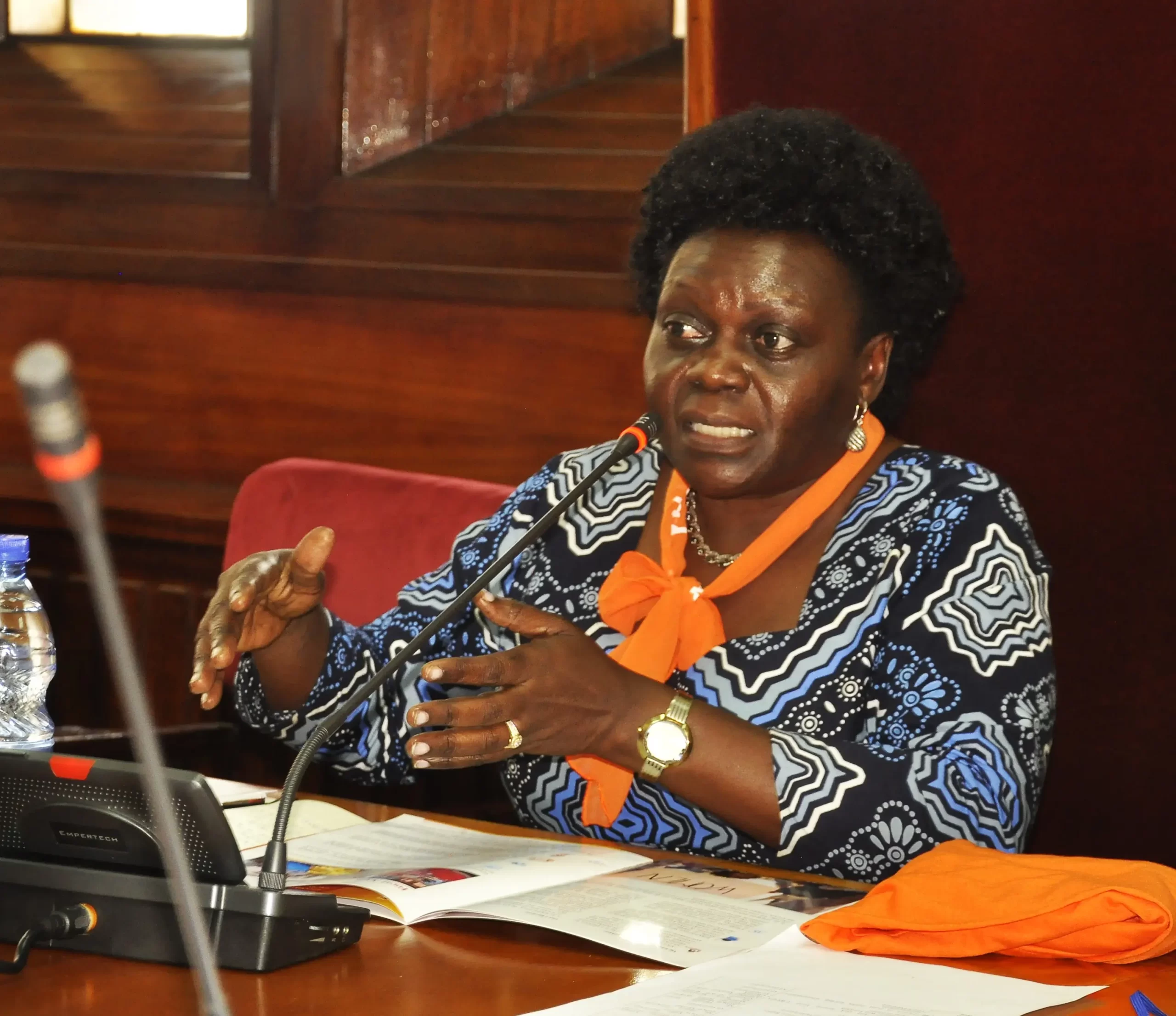
The Women Members of Parliament (MPs) have proposed a six-month timeframe within which courts should decide on cases of violence, saying that delays in the execution of justice have led to an increase in the vice in Uganda.
Sarah Opendi, the Chairperson of the Uganda Women Parliamentary Association (UWOPA), who is also the Tororo Woman Member of Parliament, made the remarks on Monday, May 27, 2024, while MPs were being trained on how to strengthen laws to combat domestic violence. The training was organized by the Centre for Domestic Violence Prevention (CEDOVIP), with a focus on strengthening provisions in the Marriage Bill that is being prepared for tabling before Parliament.
“We are aware that some of the cases take forever in court. So, we are proposing an amendment, and this is where it is coming in the sexual offenses bill, but also the domestic violence act should provide a period within which cases must be resolved so that they aren’t in court for five years,” Opendi said.
“But we are also hoping that the judiciary will be able to create a division to specifically deal with these matters. Let us amend the law so as to have timelines in which cases can be resolved within six months,” she added.
Margaret Aleper, the Kotido District Woman MP, called for closer scrutiny of cultural practices like the payment of dowry in order to make it equal with the current economic trends, saying that the practice in Karamoja, where some families still demand 100 heads of cattle as the bride price, creates an avenue for the women to be treated like property in marriages.
“There are many cultures that still draw dowry to marry their daughters, like in Karamoja, where we still have high dowry demands where women are married with 50–100 animals, which is still high, and yet the economy is boring everywhere. So it’s the women forums to fit what is in our societies because we aren’t buying our women and aren’t selling them because they aren’t goods; it can just be a token of appreciation to be shared by the family that’s giving the woman,” Aleper noted.
Agnes Apea, the Amolator District Woman MP, asked fellow legislators to start analyzing the impact of bride price because now the clan and culture demand that one is completely “bought” and no longer belongs to her family.
Research has shown that the payment of dowry dehumanizes women by equating their worth with the value of the dowry and treating them as objects or commodities. The commodification has therefore led to a power dynamic where women are seen as lesser and can be subjected to abuse.
In many places around Uganda, dowry demands have been used as a tool for coercion and control, leading to emotional, physical, and economic violence against women.
However, the Uganda Women Parliamentary Association (UWOPA) has pledged to advocate for the enactment of gender-based laws in parliament like the Sexual Offenses Bill, Market Bill, Succession Bill Amendment Bill, and Marriage Bill.